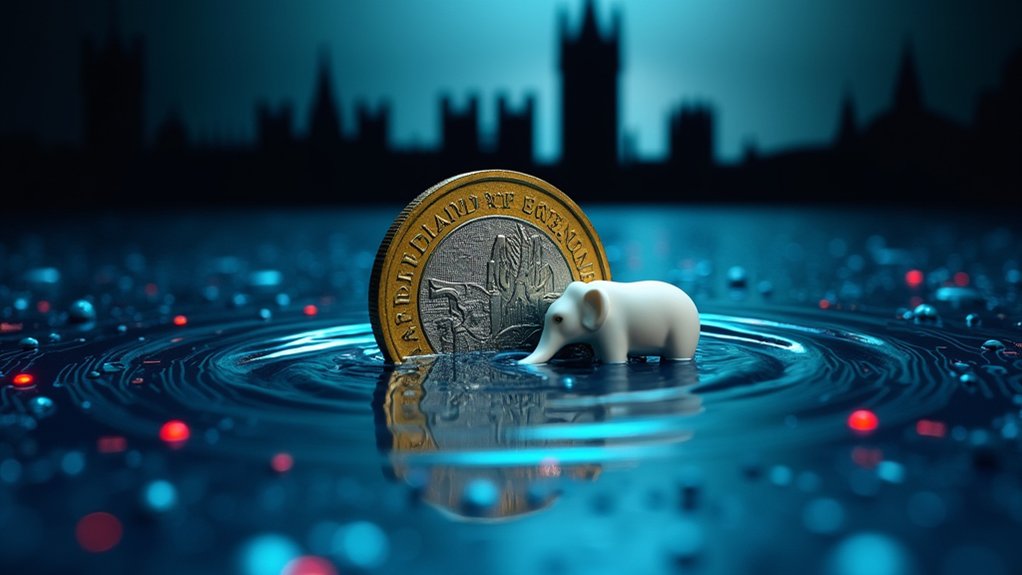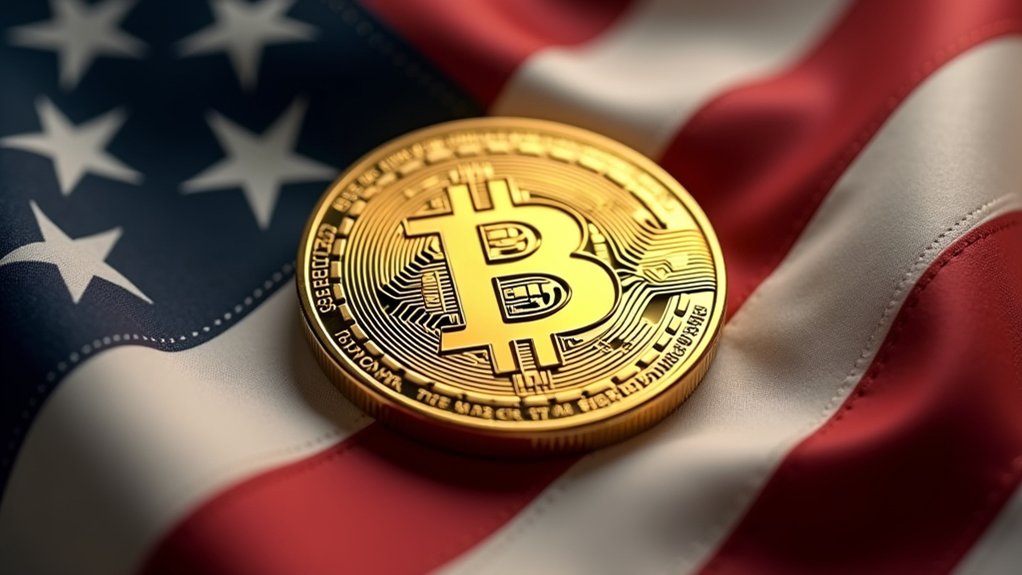Skepticism mounts over the Bank of England‘s digital pound initiative as a former insider delivers a scathing assessment. Neil Record, who once worked within the hallowed halls of Britain’s central bank, has labeled the digital currency project a “white elephant” – a brutal takedown that has financial circles buzzing.
A white elephant parading as innovation—England’s digital pound faces withering criticism from those who know the Bank best.
The Bank of England and Treasury have already burned through £24 million on this pet project. For what exactly? Nobody seems entirely sure. Record suggests there’s zero public demand for a digital pound. Zero. The public isn’t exactly clamoring for yet another way to spend their dwindling pounds.
What’s particularly eyebrow-raising is the timing. Britain already has robust digital payment systems. You can tap, swipe, and click your way through purchases without thinking twice. So why the push? Record doesn’t mince words – he thinks it’s about self-preservation. As cash use plummets, the Bank apparently needs new ways to stay relevant. Can’t have those central bankers feeling insecure, can we?
The concerns don’t stop there. Privacy advocates are sounding alarms about potential state surveillance. Your morning coffee purchase? Tracked. That embarrassing impulse buy? Logged forever. Unlike bank accounts, this digital currency wouldn’t even earn interest. What a deal!
Technical challenges loom large too. Cybersecurity, fraud prevention, infrastructure resilience – minor details, surely! Not to mention the regulatory maze that awaits, requiring new legislation and consumer protection frameworks.
Meanwhile, other global powers aren’t standing still. China’s digital yuan is racing ahead, while the ECB contemplates its own digital euro. Britain’s financial position hangs in the balance. Record argues the Bank should instead focus on controlling inflation and leave digital payments to the private sector. The digital pound’s launch schedule itself raises eyebrows, with the earliest possible deployment occurring in the late 2020s after extensive design and legislative phases.
The digital pound remains in design phase without formal approval, but skepticism grows by the day. For a country still maneuvering through post-Brexit financial waters, a £24 million gamble on an unwanted currency seems questionable at best.
As Record might say – it’s a solution desperately searching for a problem. And finding none.





